The Threat Within: Bangladeshi Intruders in India
From border states to metros, illegal Bangladeshi migrants are building a criminal network with terror links, drug trade and land encroachment.
Total Views |
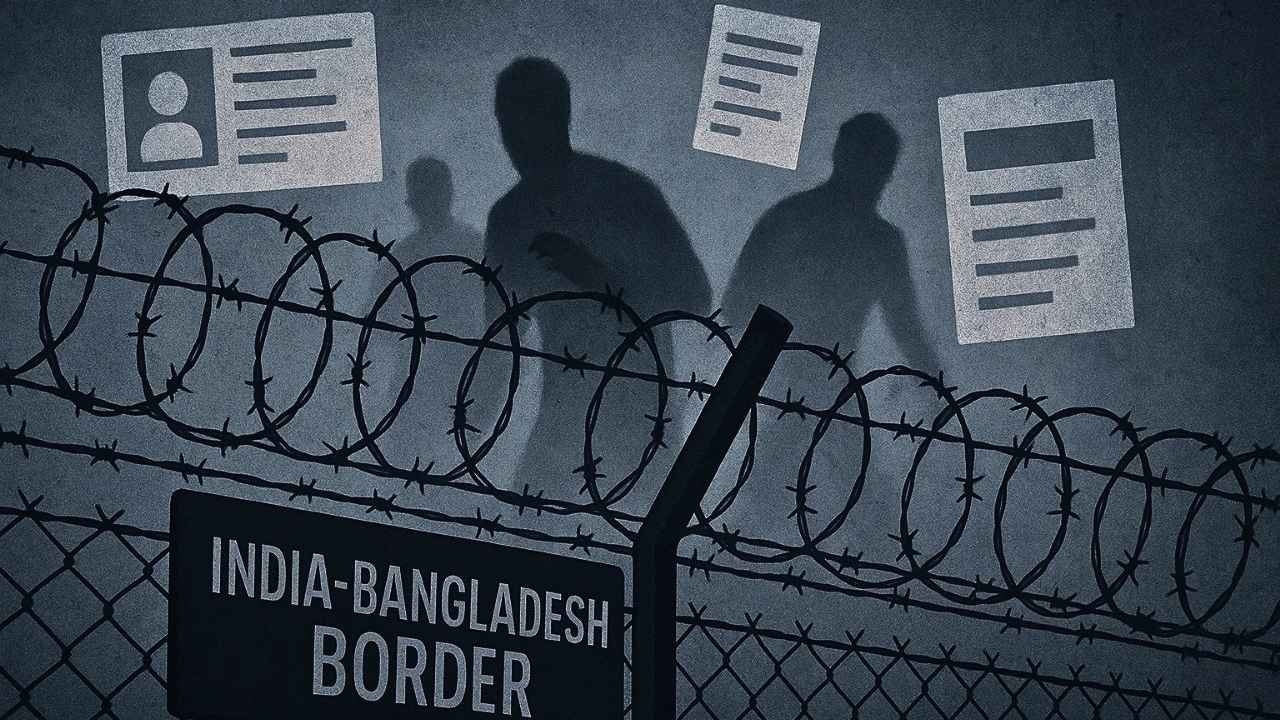
The past decades have witnessed the alarming rise of Bangladeshi intruders within the national boundaries, with no legitimate actions taken under the older regimes; the threat has now grown to such levels that the outsiders have now become the national threat.
With their links to radical Islamic organisations, these Muslim infiltrators have raised concerns over national security — they are not just invading and infiltrating the national boundaries but are settling unlawfully in Indian territory and running huge drug and human trafficking cartels.
These Muslim Bangladeshis have even been able to secure official documents under their name, masquerading as Indian residents, inviting challenges to the Indian society as these Bangladeshis are aiming to distress poverty and political instability in India.
Reports from government intelligence agencies and police departments warn the border states like West Bengal, Assam, and Tripura, as well as well-developed cities like Delhi, Mumbai, and Ahmedabad, of the infiltrations by Muslim Bangladeshis.
Terror Links
The most frightening dimension of Muslim infiltration in India is the alleged emergence and presence of sleeper cells connected to Al-Qaeda and other terrorist groups.
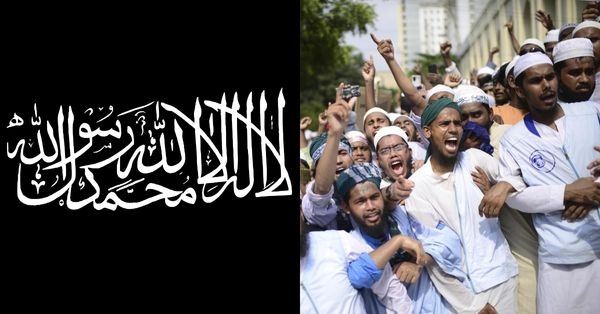
In the month of May (2025), in a major crackdown run by the Gujarat Government against the rising infiltration in the state, the police detained as many as 1000 illegal Bangladeshi infiltrators, out of which 890 were detained in the state capital, Ahmedabad, and 134 others in Surat.
Minister of State for Home Harsh Sanghavi said, “Many of these people are involved with drug cartels and human trafficking, and as we saw, two out of the four Bangladeshis arrested recently worked in sleeper cells of Al-Qaeda. A probe will be conducted into the background of these Bangladeshis and their activities in Gujarat.”
This disturbing pattern has emerged in many recent crackdowns run by the state governments under the pushback directed by the Union Ministry of Home Affairs (MHA), where it has asked the states to intensify the drive against the undocumented illegal migrants from Bangladesh.
Criminal Nexus: Drug Cartels & Human Trafficking
The Indian forces at the border have persistently busted consignments of narcotics along the India-Bangladesh border.
These swarms of Bangladeshi Muslim networks intrude borders and corrupt channels to smuggle narcotics and trafficked persons across state lines, creating a web of crime endangering both lives and livelihoods.
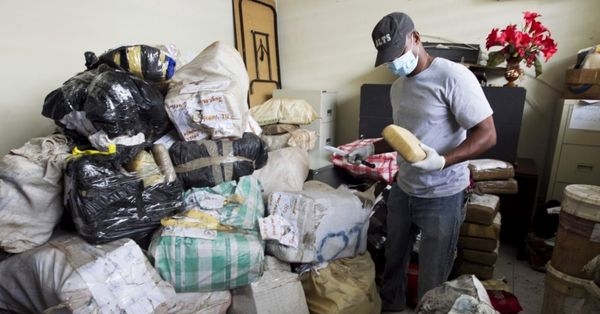
These intruders act as the facilitators of cross-border drug trades.
They prey on vulnerable populations and make them their target, also trafficking women and children for forced labour, prostitution, and the organ trade.
Economic Encroachment
The Bangladeshi Muslim immigrants settle in huge clusters across border states like Assam, West Bengal, and Tripura, gradually and increasingly expanding their presence into states like Uttar Pradesh, Delhi, and Maharashtra and Gujarat.
Through the use of forged documents, they manage to access welfare schemes, obtain jobs, and even participate in local electoral processes — thus undermining and threatening the very fabric of democratic and economic systems.
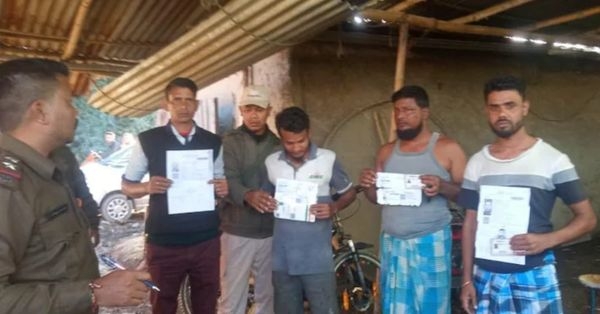
Their presence creates unfair competition in the informal labour market, leading to the displacement of local Indian workers, especially in low-wage sectors such as construction, domestic labour, and small manufacturing.
This raises social tensions in public harmony, as this silent but planned economic invasion strains public resources and reduces job opportunities for Indian citizens.
Additionally, these groups have been known to illegally occupy government and private land, particularly in urban and semi-urban areas, which not only violates property laws but also hampers urban planning, public safety, and infrastructure development aimed at the development of the region.
Commendable Action by the BJP-led Government
The Indian police and Intel agencies, in coordination with the state governments, have intensified the drives to identify and detain illegal Bangladeshi immigrants.
And reportedly, just in the past few months, Indian police have successfully detained around 1700+ illegal immigrants from the various cities, including Ahmedabad, Surat, Bongaigaon, and the cities of Odisha, Karnataka, and Delhi.
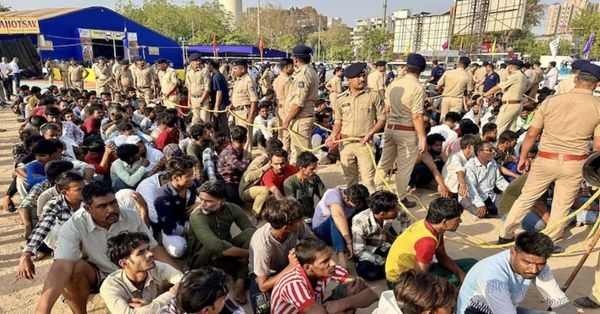
These arrests have not only led to the neutralisation of sleeper modules suspected of aiding extremist networks, but also have exposed the deeper ecosystem of support that allows such intrusions to persist — including document forgers, local political patronage.
The policies of the BJP-led government aimed to secure national borders are a step in the right direction, which with time can be seen evolving into a broader national policy that safeguards India’s borders, people, policy, and politics.
Article by
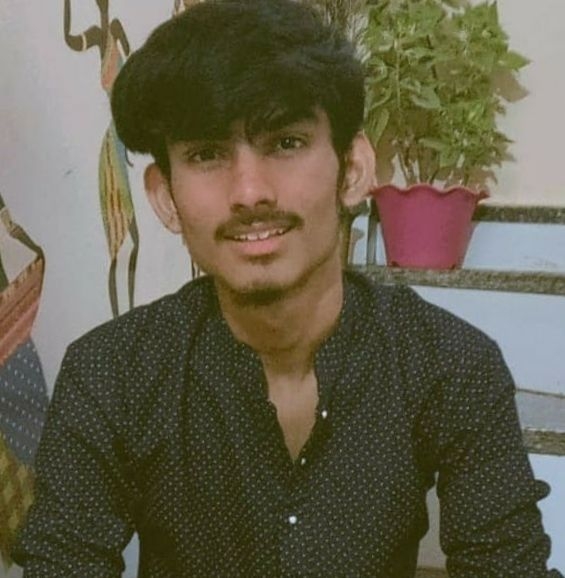
Kewali Kabir Jain
Journalism Student at Makhanlal Chaturvedi National University of Journalism and Communication

